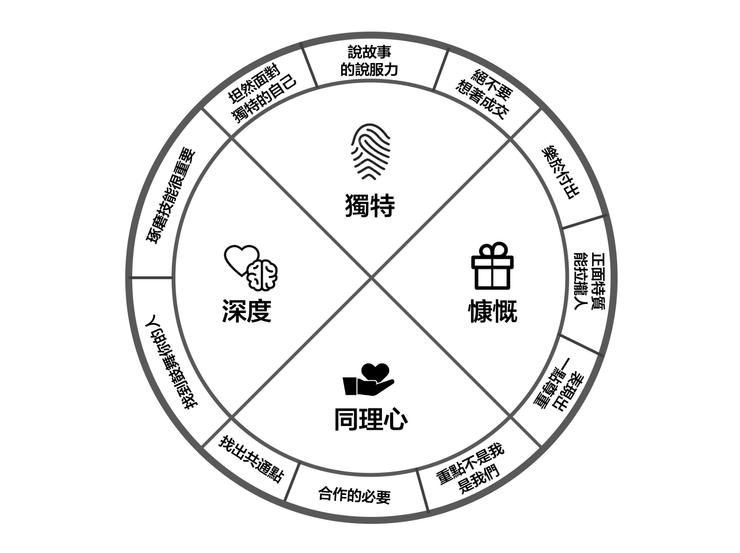During a recent bible study and small group we talked about, "what is sin?" and "does the gospel free us from everything?"
I found that the way FIFA has taken the game rules carefully stimulated my pursuit of answering some scriptural questions more carefully too. If FIFA has done the due diligence by investing time, money, and human resources for a fair game, should Christians look at "sin" and "the gospel" even more carefully?
The following resource is adopted from a sound teaching website listing what constitutes a sin in the New Testament.
Sadly, we realize that most people take sin far too casually. Some in the world don’t even believe in the reality of sin while others just pass it off as something that everyone does, thus it is not a “big deal” and we shouldn’t allow it to bother us! Yet those who believe God and His inspired Word know that sin is what will condemn, destroy, and lead most people to eternal ruin! (See 1 John 1-5) Thus, we must carefully read God’s Word and study the meaning and results of sin. Further, we must realize that Jesus is the answer to the disaster of sin for He gives us forgiveness! With this in our mind, let’s study a list of sins mentioned in the New Testament...
Adultery—Matthew 5:27-28, 32; 19:9, 18; Mark 10:11-12; Luke 16:18; Hebrews 13:4; 1 Corinthians 6:9-10; Mark 7:21; John 8:1-11
Anger—Galatians 5:20; Ephesians 4:26, 31; 6:4; Colossians 3:8; James 1:19-20
Anger with one’s brother—Matthew 5:22
Arrogance—2 Timothy 3:2; 2 Corinthians 12:20; 2 Timothy 3:2; 1 Corinthians 4:6, 18,19; 5:2; 8:1; 13:4
Bitterness—Ephesians 4:31; Hebrews 12:15; Romans 2:24; 3:14; Acts 8:23; James 2:7
Blasphemy—Mark 8:38; Acts 18:6
Boasting—Romans 1:30; 2 Timothy 3:2; Galatians 5:26; 1 Corinthians 4:7; 5:6
Brutality—2 Timothy 3:3
Brother going to Law against brother—1 Corinthians 6:1-7
Carousing—Romans 13:13; Galatians 5:21; 1 Peter 4:3
Clamor—Ephesians 4:31
Complaining—Ephesians 4:31; Colossians 3:13; 1 Peter 4:9; James 5:9
Conceit—2 Timothy 3:4
Coveting—Mark 7:22; Ephesians 5:5; Acts 20:33; Romans 13:9; 1 Corinthians 5:10-11; 6:1
Cowardice—Revelation 21:8
Deceit—Mark 7:22; Acts 13:10; Romans 1:29; 1 Peter 3:10
Defrauding—1 Corinthians 6:7-8
Denying Christ—Matthew 10:33; Luke 12:9; 1 John 2:22-23
Desiring praise of men—John 12:43
Disobedience to parents—Romans 1:30; 2 Timothy 3:2; Titus 3:3
Divisions—1 Corinthians 1:10
Divorce—Matthew 5:32; 19:9; Mark 10:11-12; Luke 16:18
Drinking parties—1 Peter 4:3
Drunkenness—Romans 13:13; 15: 13; Ephesians 5:18; 1 Corinthians 5:11; 6:10; Colossians 3:13; 1 Peter 4:3
Eating the Bread or drinking the Cup unworthily—1 Corinthians 11:27
Effeminacy—1 Corinthians 6:9
Enmities—Galatians 5:20
Envy—Mark 7:22; Galatians 5:26; Titus 3:3
Evil thoughts—Mark 7:21; Matthew 15:19
False witnessing—Matthew 15:19
Fathers, provoking children to wrath—Colossians 3:21
Fearfulness—Matthew 10:26, 28
Filthiness—Ephesians 4:3
Fleshliness–1 Corinthians 3:3
Foolishness—Mark 7:22; Titus 3:3
Foolish talking—Ephesians 5:4
Fornication (or sexual immorality)—Mark 7:21; Matthew 15:19; 1 Corinthians 6:9; Galatians 5:19
Greed—Ephesians 4:19; 5:3; 2 Peter 2:14
Lust, lusting—1 Peter 4:3; Titus 3:3
Haters of God—Romans 1:30
Hatred—2 Timothy 3:3; Titus 3:3
Homosexuality—1 Corinthians 6:9; 1 Timothy 1:10; Romans 1:26-27
Hypocrisy—Matthew 23:13,23, 25; 23, 27,28, 29; Mark 12:15; Luke 12:1; Romans 12:9
Idolatry—1 Corinthians 5:11; 6:9; Galatians 5:20; Revelations 21:8; Ephesians 5:5
Immorality (see also Fornication)—Galatians 5:19; Revelation 21:8; Ephesians 5:3; 1 Corinthians 5:9-11; 6:13, 18
Impurity—Galatians 5:19; Ephesians 5: 3, 5
Jealousy—Galatians 5:20; 1 Corinthians 3:3; 2 Corinthians 12:20; James 3:16
Jesting—Ephesians 5:4
Judging—Matthew 7:1-5; Romans 2:1; 14:13; Luke 6:37 James 4:11
Knowing to do good but not doing it—James 4:17
Laying up treasures on earth—Matthew 6:19-21; 19:21; 1 Timothy 6:9-10; Luke 12:21, 33; 18:22
Legal matters, court–1 Corinthians 6:1-6
Living for pleasure—2 Timothy 3:4
Lovers of self—2 Timothy 3:2
Loving another person more than Jesus—Matthew 10:37; Luke 14:26
Lusting after a woman—Matthew 5:27-28; 1 Peter 4:3; Matthew 18:9
Lying—Revelation 21:8, 27; 22:15; Ephesians 4:25; Romans 9:1; 2 Corinthians 11:31; Galatians 1:20; 2 Timothy 2:7
Malice—Romans 1:29; Ephesians 4:31; Colossians 3:8; 5:8; Titus 3:3; 2 Peter 2:1
Man praying or prophesying with head covered—1 Corinthians 11:4-16
Murder—Revelation 21:8; Mark 7:21; 5:21; 10: 19; 19:18; Luke 18:20; Romans 1:29; 1 Peter 3:15; 4:15; Matthew 15:19
Murmuring, complaining—Colossians 3:13; 1 Peter 4:9; James 5:9
Pride—Mark 7:22; 1 Peter 5:5, 6; James 4:6; Matthew 23:12; Luke 14:11; 18;14
Prostitution–1 Corinthians 615-16
Quarrels—James 4:1-2; 1 Corinthians 1:11; 2 Timothy 2:23
Reviling—1 Corinthians 4:17; 5:11; 6:10; 5:11; 2 Timothy 3:2; 1 Peter 2:23
Sensuality—Galatians 5:19; Mark 7:22; Romans 13:13; 2 Corinthians 12:21; 1 Peter 4:3; Ephesians 4:19; 2 Peter 2:2
Slander—Matthew 15:19; Mark 7:22; Ephesians 4:31; Colossians 3:8; 2 Peter 2:1; 1 Corinthians 4:13; Romans 1:30
Sorcery—Galatians 5:20; Revelation 21:8, 15; 9:21; 18:23
Speaking against the Holy Spirit—Matthew 12:32; Luke 12:10
Stealing—Ephesians 4:28; 13:9; Matthew 19:18; Mark 10:19; Luke 18:20; Romans 2:21; 13:9
Strife, quarreling—Galatians 5:20; Romans 1:29; 13:13; 1 Corinthians 3:3; 2 Corinthians 12:20; 1 Timothy 6:4
Swearing an oath—Matthew 6:34-37; James 5:12
Swindling—1 Corinthians 5:10-11; 6:10
Thievery, theft—1 Corinthians 6:10; Mark 7:21; John 10:1, 8; 1 Peter 4:15; Matthew 15:19
Treachery—2 Timothy 3:4
Unbelief, lack of faith—James 1:6; Mark 9:24; Hebrews 3:12, 19; 1 Timothy 5:8; 2 Corinthians 6:14-15; 7:13; 2 Corinthians 4:4; Titus 1:15; Revelation 21:8
Unforgiveness—Matthew 6:14-15; Mark 11:25-26
Ungodliness—Romans 1:18; 4:5; 5:6; 1 Timothy 1:9; 2 Timothy 2:16; Titus 2:12; 2 Peter 2:5, 6, 7
Ungratefulness—2 Tmothy 3:2; Romans 1:21; Luke 6:35; 2 Timothy 3:2
Unholiness—2 Timothy 3:2; Hebrews 12:14
Unrighteousness—Romans 1:18, 29; 2:8; 6:13; 1 John 1:9; 5:17; 1 Corinthians 6:9
Wickedness—Mark 7:22; Luke 11:39; Acts 8:22; Romans 1:29; 1 Corinthians 5:8, 13; Ephesians 6:12; 2 Thessalonians 2:10, 12; 2 Timothy 2:19
Woman cutting her hair short—1 Corinthians 1:14-15
Woman with her Head uncovered—1 Corinthians 11:5-16
Woman speaking or teaching in public—1 Timothy 2:11-15; 1 Corinthians 11:33-37
Wrath—Ephesians 4:31; Colossians 3:8; 1 Timothy 2:8
Wrong–1 Corinthians 6:8
You have now come to the end of our list. We hope that you have found this to be enlightening and helpful. As you can see, the listing of sins here is much more complete and helpful than the previous one. Spend some time not only looking over this list but also use it for your own blessing. Also, you will want to use this to help and bless others you know. May God bless you!
–Richard Hollerman









